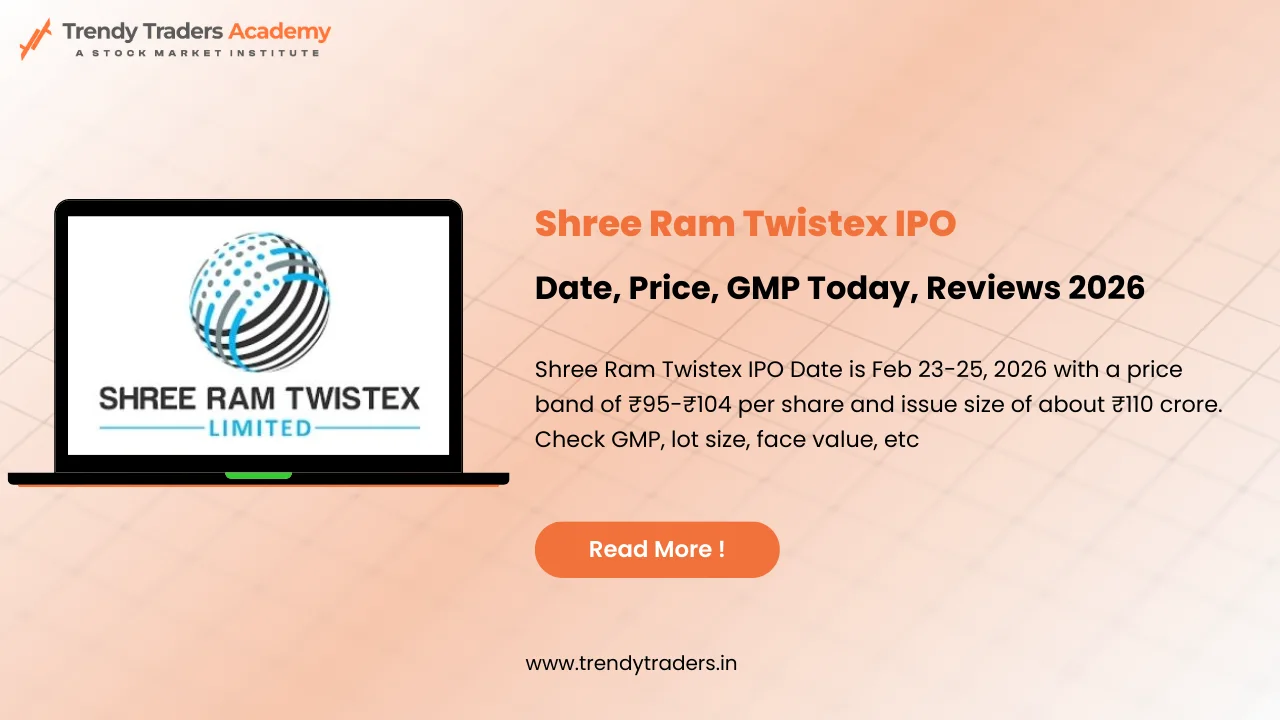
How to Learn Trading for Beginners: A Genuine, Step-by-Step Path to Smart Investing
Imagine standing at a crossroads, holding a little savings and a big dream of financial freedom. You see friends trading stocks on their mobiles, reading charts, and talking profit. You ask yourself, how to learn trading for beginners? Does it require secret formulas, expensive courses, or financial wizardry? Actually, anyone—student or retiree—can start this journey, one mindful step at a time.
This guide offers clear direction: you’ll learn how to start a trading account, how to answer “how do I start trading stocks?” and master “how to learn trading step by step”—without jargon, stress, or unnecessary risk.
Why Should Beginners Even Trade?
Let’s be frank. Traditional saving (like fixed deposits) hardly beats inflation. But trading, if done right, can help money grow. What drives people to learn?
- Control: One decides what, when, and how much they invest.
- Flexibility: Fits around their job, studies, or daily life.
- Growth Potential: Investing in a smart manner helps build wealth over time.
Trading Myths—Busted
Ever heard these before?
- “Trading is only for financial experts.”
- “You need thousands to begin.”
- “Stocks always lose money.”
None is true! Beginner-friendly apps, online material, and demo accounts mean how to start a trading journey now just takes curiosity and a phone.
Starting Out: The Basics Explained
Trading simply means buying and selling financial products, like stocks. Let’s break down some terms you’ll bump into:
Buzzword | Everyday Meaning |
Stock | Tiny ownership in a company |
Broker | App or website where you trade |
Demat Account | Digital locker for your shares |
Order | Buy/Sell request for stocks |
Portfolio | Your collection of investments |
Stop-Loss | Safety net to limit losses |
How to Learn Trading Step by Step: No-Nonsense Blueprint
So, how to learn trading for beginners—the real way? Here’s an honest, hands-on map.
Step 1: Build a Simple Foundation
- Watch Explainer Videos: YouTube is gold for basics.
- Download Investment Apps: Many offer free trading tutorials.
- Read Easy Blogs: Start with daily market summaries, not lengthy textbooks.
Tip: Treat trading like learning a sport. Watch, practice, repeat.
Step 2: Choose Your Broker Carefully
The broker is your bridge. Popular Indian platforms include:
App Name | Special Features | Good For |
Zerodha | Low fees, educational hub | All-round beginners |
Super simple interface | First-timers & MF fans | |
Upstox | Light, fast onboarding | Anyone, especially youth |
Angel One | Tutorials, research reports | Those wanting guidance |
Check app reviews, service quality, and account-opening speed before starting.
Step 3: Kickstart Your Demat & Trading Account
- You’ll supply: PAN, Aadhaar, and bank details (all online).
- Most accounts open in hours, some instantly.
- Link your savings account for seamless deposits/withdrawals.
How do I start trading stocks? Step one is always creating your trading and demat accounts.
Step 4: Start Small With Your First Investment
Scared of losing money? Begin with one or two shares—invest what you’re ready to learn with.
- Pick big, trustworthy companies at first (“blue chips”—think HDFC, Infosys).
- Try a mutual fund or ETF for easier diversification.
- Use “demo mode” if your broker supports it—practice trades without risk.
Step 5: Take Your First Real Trade
- Log in to your broker app.
- Search for a stock.
- Click ‘Buy’, select quantity, and confirm.
- Track your portfolio to see performance in real time.
Each step teaches something new—celebrate small wins, review mistakes, and try again.
Checklist for Trading Beginners
Action | Why It Helps |
Read/Watches | Reduces beginner errors |
Choose Broker Wisely | Ensures smooth experience |
Practise Via Demo | No risk, gain skills |
Start Small | Keeps losses manageable |
Track Transactions | Learn from results |
Set Stop-Loss Orders | Smart risk management |
Learning Styles: Pick What Suits You
There’s no single correct way. One must Explore:
- Online Courses: Trendy Traders Academy, Coursera, Udemy, and local apps such as Zerodha Varsity
- Take an offline course from reputed trading institutes such as Trendy Traders Academy so that one can get coaching with hands-on experience and mentorship from experienced traders.
- Mentorship: Joining Telegram, WhatsApp, or local trading clubs
- Chat Forums: Ask and answer on Trading QnA or Quora
Common Mistakes (And Clever Ways to Dodge Them)
Mistakes are normal—here’s how to avoid classic blunders:
- Impatience: Don’t chase “hot tips” or trade daily for thrills.
- Overconfidence: Don’t invest all funds in one stock.
- Ignoring Costs: Brokerage and taxes eat profits—factor these in.
- No Risk Management: Always set stop-losses to limit downside.
Personal Story: Arun, age 21, bought penny stocks without reading up. They plunged, but stop-loss saved him from bigger loss. He now follows “how to learn trading step by step,” reviewing every trade.
Sources You Can Trust as a Beginner
Resource Kind | Reliable Options |
Books | “The Intelligent Investor”, “One Up on Wall Street” |
Apps | Zerodha Varsity, Groww Learn |
News | Economic Times, Moneycontrol |
Forums | Reddit IndiaInvestments |
Example: Meena’s First Trade
Meena, age 34, felt clueless—“how do I start trading stocks?” She found a beginners’ workshop, downloaded a trusted broker app, and made a virtual trade. After three weeks of practice, she invested in a blue-chip stock and saw her portfolio grow, slowly but in steady manner.
How to Learn Trading for Beginners: Build Confidence Everyday
- Set aside a learning hour each week.
- Jot down every lesson or regret after each trade.
- Using trial versions or play-money features whenever required.
- Reward oneself for sticking to good habits (such as monitoring transactions).
- One must keep in mind that practice makes perfect, but patience makes profits.
Why Trendy Traders Academy is One of the Best Places to Learn Trading
For anyone starting their journey to understand the markets, Trendy Traders Academy Best Offline and online stock trading courses offers an approachable and effective path. What makes this academy stand out is its focus on practical learning designed specifically for beginners and intermediate traders who want to build real skills—not just theory.
What You Get at Trendy Traders Academy
Key Feature | Description |
Real-Time Market Learning | Offers practical sessions where learners observe and analyze live trading activities, bridging theoretical knowledge with real market scenarios. |
Organized Learning Path | Provides a well-structured syllabus that takes beginners stepwise from fundamental concepts to more complex trading techniques for easy comprehension. |
Personalized Guidance | Connects students with seasoned traders who deliver customized advice and support to address individual learning needs. |
Active Learner Community | Encourages participation in interactive groups and forums where members exchange ideas, ask questions, and motivate each other throughout their learning. |
Feature | Benefit |
Experience Level | Suitable for beginners and intermediates |
Learning Style | Live sessions + self-paced modules |
Mentorship | Direct access to experts |
Community | Supportive and active trading groups |
If you are wondering how to learn trading for beginners, Trendy Traders Academy’s practical and personalized approach makes it a top choice in India today.
Step-by-Step Trading Styles for Newbies
Trading Style | What It Means | Best For |
Value Investing | Buy and hold solid companies | Patient, risk-averse |
Swing Trading | Aim for short-term ups & downs | Quick learners, active |
ETF/MF Investing | Bundle of assets, low effort | Those wanting simplicity |
One should begin simple, try various styles in virtual accounts, and pick what suits their personality.
Staying Motivated: Progress Over Perfection
Everyone starts clueless. The trick isn’t avoiding all mistakes, but learning from each one. Your best approach to how to learn trading for beginners is honest self-reflection, setting achievable goals, and never betting more than you’re ready to lose.
Pros & Cons for First-Time Stock Traders
Pros | Cons |
High growth potential | Losses if careless |
Self-control over choices | Emotional risks |
Wide learning resources | Overwhelming information |
Flexible timing | Tax and fee factors |
Daily Trading Habits That Build Success
- Check market headlines over breakfast—just 5 minutes
- Review portfolio once a week, not every hour
- Write “why I’m buying” for every trade
- Aim for small wins, not jackpot profits
- Network within community groups for fresh ideas
Cherishing Small Wins and Learning from Losses
Getting a grasp on how to learn trading for beginners involves cherishing each achievement – the first ever profit, a loss that can teach you a lesson, becoming a master of a tool, or even aiding a friend who has started their own journey in trading
Conclusion: Starting Smart and Learning Every Day
So, how does one begin trading stocks in a successful manner? They should begin by staying curious, open-minded and honest about what they don’t know yet. Practising consistently, starting with a small capital, taking help from trustworthy sources and people, and maintaining accurate and proper records can pave the way for an individual’s trading future. Trading is never about a race – it’s a lifelong journey of learning, grasping, adapting, evolving, improving and growing wealth as they move forward.
Whether one is a student, homemaker, or a retiree, getting a grasp on how to learn trading step by step lets one trade in a confident and responsible manner, no matter what their background or starting budget is.
FAQ'S
How to learn trading for beginners if I have zero experience?
Use simple video tutorials, demo accounts, and read one blog per day.
How to learn trading step by step if I have little time?
Pick one step daily—download app Monday, open account Tuesday, buy first stock Wednesday.
How do I start trading stocks with minimum risk?
Starting with small capital, deploying stop-loss, and avoiding stocks that are hype-driven .
How to start a trading journey as a student or employee?
- Focus on blue-chip stocks, use simple apps, and invest only surplus funds.
Is it okay if I make initial losses?
Completely normal. Every trader faces losses—learn, adapt, and stick to your strategy.










